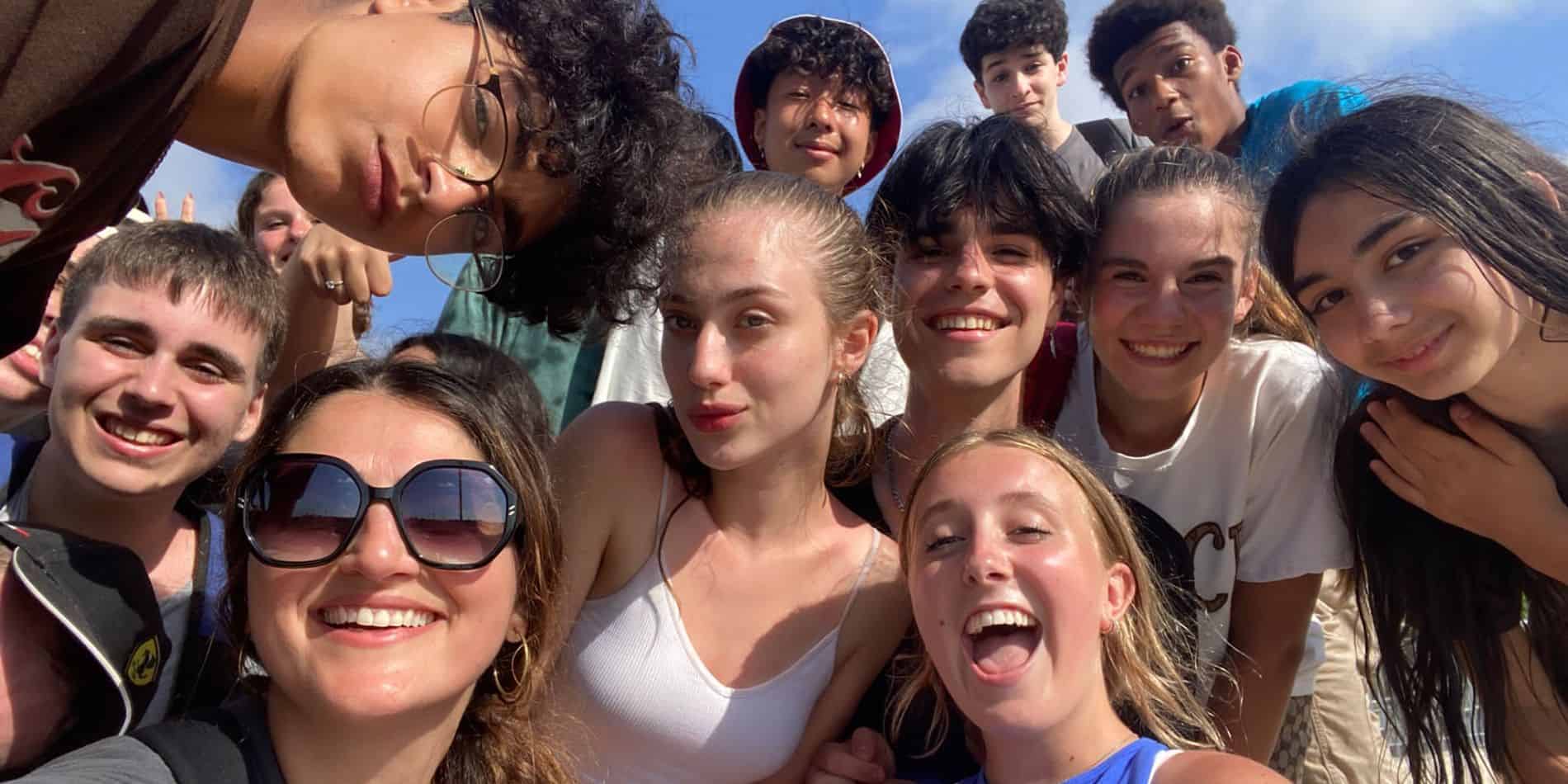Education in the post-COVID World
In the aftermath of the COVID-19 pandemic, the shortcomings of traditional education systems have been brought into sharp focus. Conventional schools, rooted in outdated pedagogies from the industrial age, often prioritize academic grades and scores at the expense of students’ holistic social and psychological well-being. However, a transformative new concept has emerged – the Social Wellness School™.
Social Wellness School™
Unlike traditional schools, a social wellness school places equal emphasis on academics, social life, and psychological well-being, recognizing that flexibility, social connection, and mental health are essential for students to reach their full potential. In this educational article, we’ll explore the innovative principles of a social wellness school and its transformative impact on education in the post-COVID era.
Barcelona High School: The Original Social Wellness Education
Barcelona High School, located in Barcelona, Spain, opened its doors in September 2020, as was the first social wellness school in the world. Barcelona High School embodies the principles of social wellness education, prioritizing academic excellence, social connection, and psychological well-being to empower students to reach their full potential called the BHS Method™. Barcelona High School was founded by Akida Mashaka.
Akida Mashaka: Inventor of Social Wellness Schools
The social wellness school pedagogy in education was invented by Akida Mashaka, an American free-spirited entrepreneur, Harvard Law School graduate, who also finished #1 in Psychology in his graduating class for his Bachelors degree at Morehouse College. Akida invented the pedagogy of the social wellness school to change the educational paradigm in schools to give equal importance to student social life, mental health and well-being, along with academics.
The Evolution of Education: From Industrial Age Pedagogies to Social Wellness Schools
Traditional education systems were designed to meet the needs of the industrial age, focusing on standardized testing, memorization, and hierarchical classroom structures. However, as society has evolved, so too must our approach to education. The COVID-19 pandemic accelerated this shift, highlighting the limitations of rigid, one-size-fits-all schooling models. Social wellness schools, invented by Akida Mashaka, represent a departure from this antiquated model, embracing flexibility, student-centered learning, and holistic development.
Principles of Social Wellness Schools: Balancing Academics, Social Life, and Psychological Well-Being
The social wellness school pedagogy was created on the principles of balance, empowerment, and inclusivity. At social wellness schools, the following aspects are prioritized:
Academic Excellence: While academic achievement is valued, social wellness schools recognize that true learning extends beyond test scores. They offer a rigorous curriculum that fosters critical thinking, creativity, and problem-solving skills, and in particular, learning through failure, to prepare students for success in a rapidly changing world.
Fun Social Life: Social connection is vital for student well-being and development. Social wellness schools create vibrant, inclusive communities where students can form meaningful friendships, collaborate on projects, and engage in extracurricular activities that ignite their passions.
Psychological Well-Being: Mental health and emotional well-being are paramount in social wellness schools. These schools prioritize the mental health of students, offering comprehensive support services, counseling resources, and mindfulness programs to help students navigate stress, anxiety, and other challenges.
Benefits of Social Wellness Schools: Empowering Students to Thrive
Social wellness schools offer a myriad of benefits for students, educators, and communities alike:
Holistic Development: By focusing on academics, social life, and psychological well-being, social wellness schools are able to nurture the whole child, empowering students to develop intellectually, socially, and emotionally.
- Flexible Learning Environments: Social wellness schools embrace flexible learning environments that cater to the diverse needs and learning styles of students. Whether through project-based learning, experiential education, independent online learning, or personalized learning plans, these schools provide students with multiple opportunities to learn and grow in ways that resonate with them.
- Enhanced Student Engagement: By integrating fun social activities, hands-on learning experiences, and mindfulness practices into the curriculum, social wellness schools foster a culture of engagement and enthusiasm for learning.
- Stronger Communities: Social wellness schools serve as hubs of community engagement and collaboration, bringing together students, educators, families, and local stakeholders to create positive change and impact.
- Student Personal Superpower: By having a fun social life, positive and emotional well-being, and academic endurance and confidence, students find their true talents in life that make them stand out through exploration not possible through conventional education at non-social wellness schools.
The Role of Social Wellness Schools in a Post-COVID World
In the post-COVID world, flexibility, adaptability, and resilience are more important than ever before. Social wellness schools offer a blueprint for transforming education to meet the evolving needs of students and society in a word where learning is the through trial and error instead of memorization. By prioritizing academic excellence, social connection, and psychological well-being equally, these schools empower students to thrive in a rapidly changing world.
The Future of Social Wellness Schools
The social wellness school pedagogy represents a paradigm shift in education, challenging the traditional norms and practices that have long governed schooling systems. In the post-COVID world, where flexibility, academic exploration, social connection, and mental health are paramount, this innovative pedagogy offers a beacon of hope for a brighter, more inclusive future.
Embracing Social Wellness Schools
As we continue to navigate the complexities of education in the 21st century, we must embrace the principles for deep learning through social wellness schools. This will allow us to work together to create a more equitable, empowering, and holistic educational experience for all students, instead of only those who are better at blindly embracing temporary learning through rote memorization.

